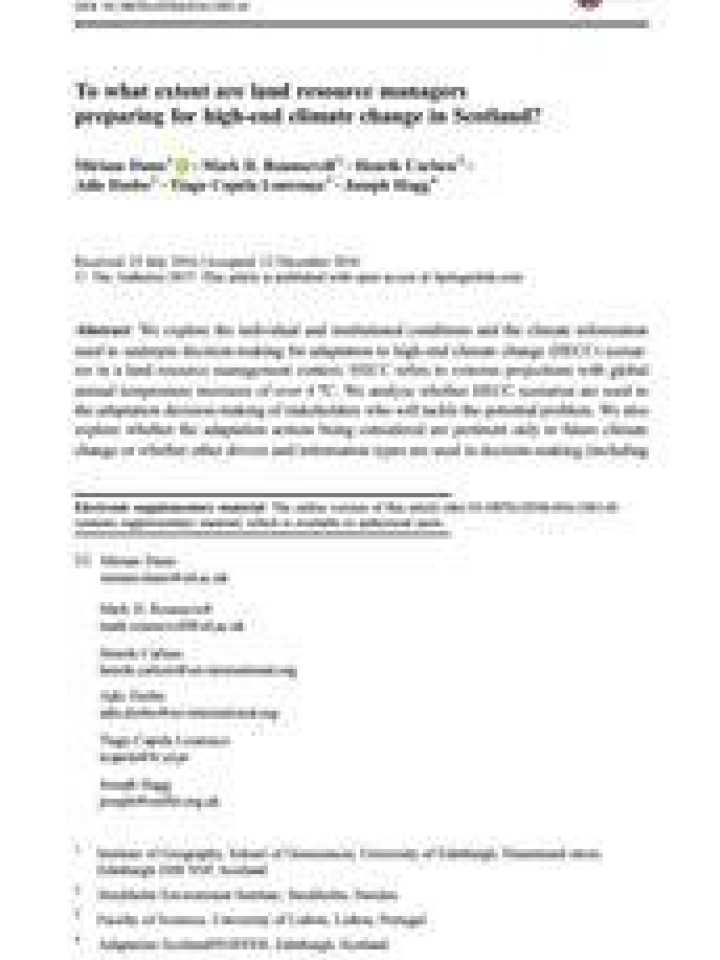To what extent are land resource managers preparing for high-end climate change in Scotland?
This study provides evidence to assist in contextualising probabilistic information by creating usable, cross-sectoral, decision-centred information. Focused on preparedness for high-end climate change (HECC) scenarios, semi-structured interviews were conducted with decision-makers engaged in the management of Scotland’s land resource sectors to gather empirical data about their adaptation decision-making.
The research shows that the lack of usability of information and institutional decision processes that are highly influenced by timeframes of political and policy cycles are two of the primary factors inhibiting HECC from being included in existing adaptation decision-making.
The first of these barriers can be overcome by tailoring and contextualising information to focus on the implications of particular sectoral and importantly also cross-sectoral impacts of climate change. The institutional barriers associated with the political process and policy cycles are greater challenges to overcome. This work has shown the importance of beginning any adaptation decision-making work with adequate diagnosis and framing of the problem.
Uncertainty is not considered to be a significant barrier to adaptation action; however, a different approach should be taken to working uncertain climate projections into decision-making. Qualitative, descriptive uncertainty terms are more closely aligned with existing decision-making processes and are, therefore, more likely to be correctly understood and used.
Understanding challenges for individual and collective action for adaptation decision-making processes provides important evidence to assist with contextualising climate change information.
Shared under a Creative Commons Attribution 4.0 International License (CC By 4.0).
Explore further
